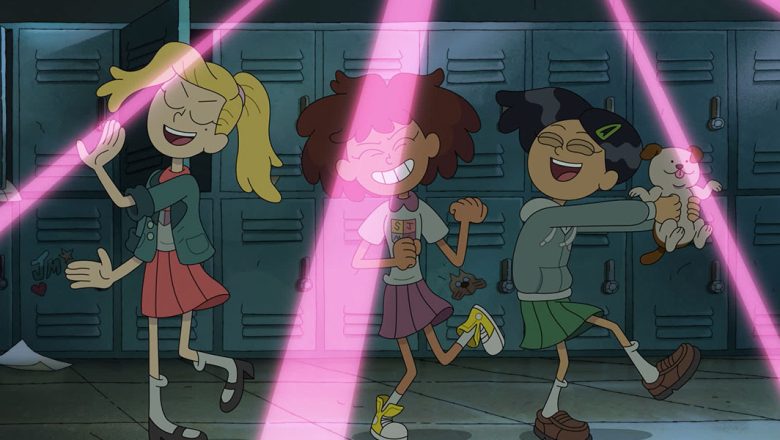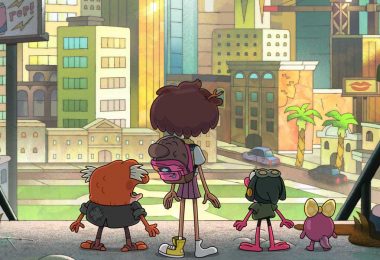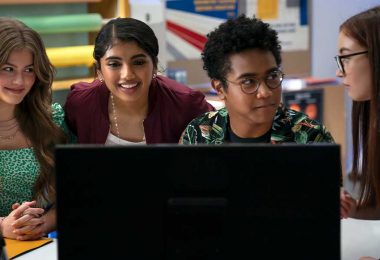By Zach Johnson
Will Anne Boonchuy get her “hoppy” ending?
After three seasons, the Disney Channel animated series Amphibia will conclude this month, first with the one-hour episode “All In” on Saturday, May 7, at 8 p.m. ET/PT, followed by the half-hour episode “The Hardest Thing” on Saturday, May 14, at 8 p.m. ET/PT. (All three seasons of Amphibia are available to stream on Disney+.) We recently sat down with series creator and executive producer Matt Braly for an extensive conversation about the series, ranging from his long-planned three-season story arc to his pride in seeing how Anne (voiced by Brenda Song) evolved since her debut in 2019.
The conversation below has been edited and condensed for clarity.
D23: How does it feel for you to say goodbye to Amphibia after three seasons?
Matt Braly (MB): I’m sort of feeling all the emotions at once. I’m so grateful and relieved, but I’m also sad. It’s very bittersweet. But in the end, it feels right. This story has always been written with this arc and this conclusion. Some of my favorite books and movies are my favorite because of their endings. I think about all these great stories, and many of them, it’s the ending that really defines them. And for me, when you see the final scenes of this show, I think you will understand the show even more than you do now.
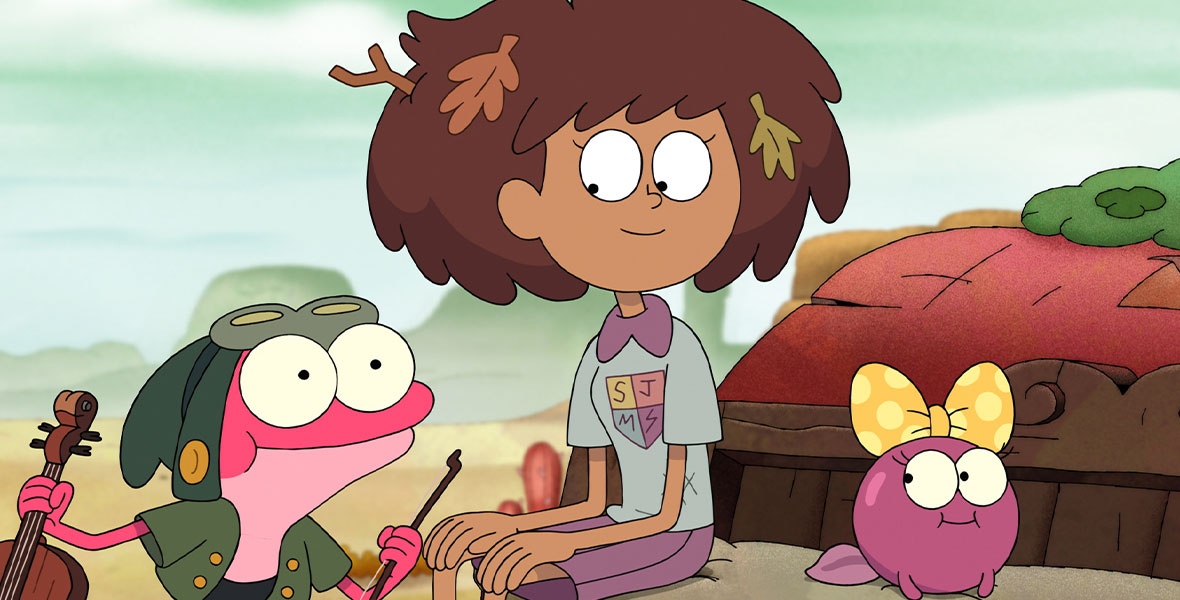
D23: You’d always planned a three-season arc. Did everything go as planned, or did your plan deviate based on story needs? Does the finale align with your original vision?
MB: I had a broad outline and goals, but sometimes you’d come to these narrative choke points and realize, “Oh, the character would never do that.” So, we had an outline, but we had some flexibility to bob and weave. These characters speak to you, and they tell you what feels right. When I say that it’s been planned, I mean the big, broad beats. For example, at the end of season two, I always knew they were going to fight with this king and they were all going to get stuck on Earth somehow at the end of it. I had these big tentpoles figured out, but I had an amazing writing team who would take those goals and tentpoles and turn them into great episodes.
D23: Let’s talk about Anne’s journey throughout the series. How has she grown with each passing season? Where does she still have to go as we’re heading into the finale?
MB: Anne’s character arc is the most important to me, and it is both obvious and nuanced. The obvious character arc is Anne becoming more of a selfless person—not being this irresponsible, bratty kid, which she was in season one. You can see her growing and changing across all three seasons, becoming a much more responsible person. Look no further than the beginning of season three, when the Plantars—these interdimensional frogs—are basically her charges, and she’s taking care of them. She’s like a parent to them, which is a delightful role reversal for this character who basically wouldn’t follow the rules before. So, that’s the broad, obvious character arc.
The second character arc for Anne is about self-love and self-esteem. That one is a little bit more nuanced, because you have to look at season one and the dynamics she had with her friends. You might have thought to yourself, “Why is this girl getting pushed around so much? Why doesn’t she put her foot down and stand up for herself?” She’d been under Sasha’s thumb for their whole life—their whole friendship! Finally, at the end of season one, there was this great moment where Anne put her foot down and said, “I’m not going to do that. I’m going to do what I think is right.” The truth is, she was only able to do that because somebody else showed her love: Sprig and the Plantars. That built her self-esteem up and taught her that maybe she shouldn’t be stepped all over; maybe she is someone who is deserving of love, who is growing this kind of self-love. That is the No. 1 thing to look forward to as we approach our season three finale—the combination of that arc, that self-love and that self-respect.
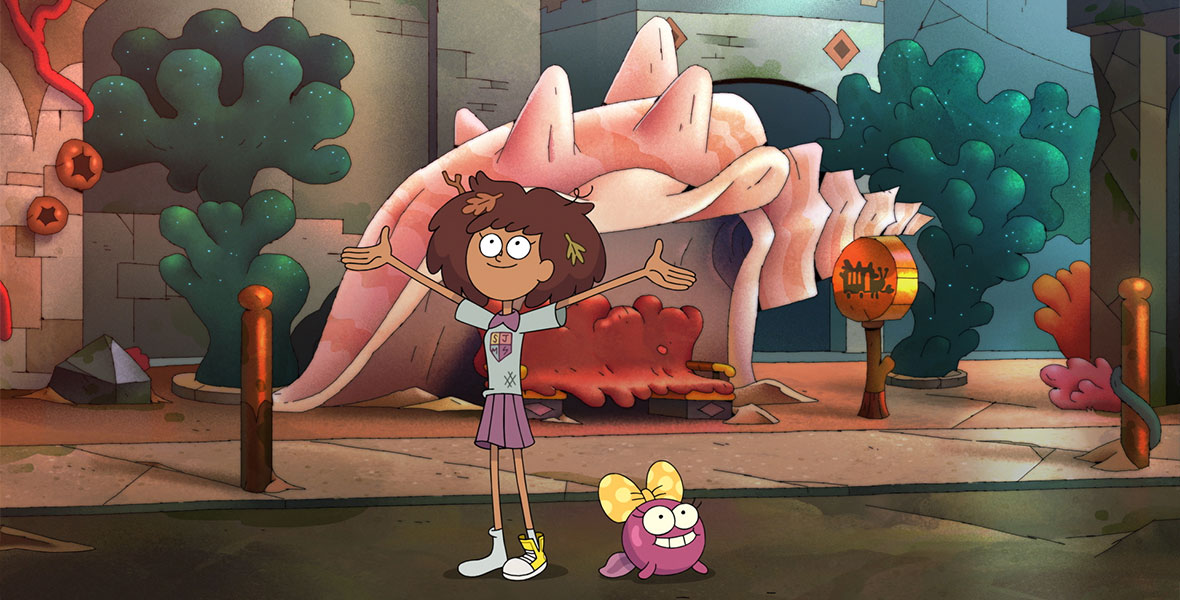
D23: It’s been interesting to watch the ebbs and flows in Anne’s relationships with Sasha and Marcy. How were you able to depict their dynamics in a way that felt real?
MB: It’s a tricky needle to thread, but you’re absolutely right: This is a show about ebbs and flows. It’s about complicated relationships. One of the very first images I ever did for the show was all three girls sitting on the couch, kind of sleeping, and Sasha had her arms around the other two. And at the top, it just said, “It’s complicated.” You know what it means. That was really my mission statement for these three girls. None of them is a cartoon villain; they all have very nuanced motivations for what they do. It was really important for me to show that everyone was a little bit at fault for what went wrong in their relationship. Sometimes we need to grow apart to grow back together. Sometimes you’ve been locked into a group and its dynamics for so long that the second you exit that bubble and make relationships with new people, you almost become a different person. All three girls have done that; they’ve separated from each other, they’ve made connections with new people, and they’ve grown independent of one another. And I think that really changes things when they do come back together. My own experience with friendships was deeply influential on this. I have the advantage of being close to 35 years old now and looking back at these relationships. It really allowed me to think about how we grew apart, we grew back together, we grew apart again, and we found each other again. There’s this beauty in life of these relationships that ebb and flow. That’s what I wanted to bottle up. It’s tricky, though!
D23: In season three, Anne reunited with her parents on Earth. It’s been fun to see how their dynamic has evolved since she’s been gone. Anne’s not the same girl anymore.
MB: It’s great because her parents immediately are like, “Oh, she seems different.” Even in the very first episode, “The New Normal,” it’s like, “There’s something different about our little girl.” It really crescendos in “Escape to Amphibia,” where they give her a pep talk and Mom is like, “You’re not my little girl anymore. You can do this. You can do anything. We believe in you.” The only reason that’s possible is because Anne went outside of their bubble and made this new connection on her own—and found this independence and learned all this stuff about herself. I think it’s really true to the idea that your parents are wise and they love you; they’re always giving you great advice, and you just don’t listen, for whatever reason. My headcanon is that her parents have absolutely been trying to steer her in this direction forever, but kids—especially me as a teen—just don’t listen. I had to go out. I had to make those mistakes and learn those lessons, independent of them, to really come back home and be like, “You were right.” That’s basically what happened with Anne. She comes back home, and her parents are ready to lecture her, and then they see she has already learned those lessons—that she’s become a more independent, responsible person. To me, that’s really gratifying.
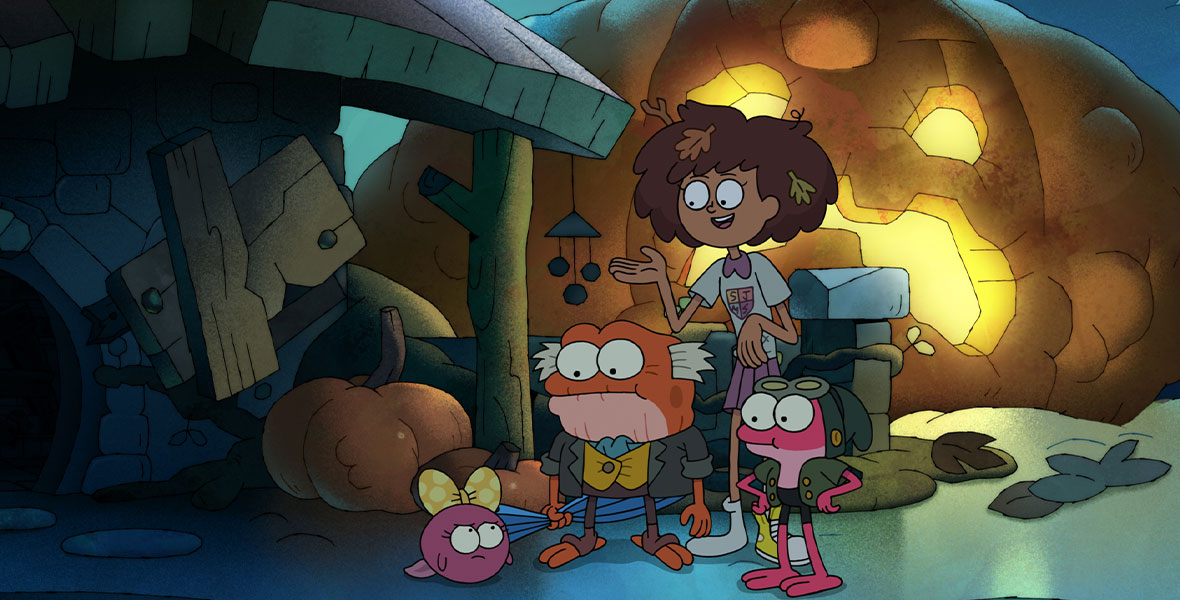
D23: It’s hard to pick favorites, but what would you consider to be some of the standout episodes that encapsulate exactly what you wanted Amphibia to be and do?
MB: I love the episode “Toad Tax,” which is the very first episode in season one where Anne really makes a stand. She stands up to these toads who are abusing these frogs, and it’s so gratifying to see. She used to not really being part of this community and didn’t really care that much. And here she is throwing her safety on the line in order to stand up for them. That stuff is very emotional for me; watching the very start of her change is quite a big moment. I also really love the episode “Reunion,” which is our season one finale, because when she finally stands up to Sasha, it just gives me chills. Her whole life, this girl has been saying, “End of discussion!” And that really was at the end of it. And finally, Anne is putting her foot down. And then “True Colors”… we barely were able to produce that episode, if I’m being honest, in the sense that this is an 11-minute, episodic comedy with a budget to match. We have a very specific production, and we have a very specific pipeline. The idea that we were making this Star Wars-like epic finale, I’m just so proud of the team for coming together and problem-solving. And then in season three, there’s a couple episodes that get me. I love at the end of “Adventures in Catsitting” when Mr. Boonchuy tells the Plantars, “You’ll never owe us anything because you took in our daughter. That means the world to us, so don’t worry about being freeloaders or guests.” The performance from Brian Sounalath and [Disney Legend] Bill Farmer really gets to me. And I love anything with Mom, because it’s my mom. [Editor’s note: Matt’s mother, On Braly, voices Mrs. Boonchuy.] I’m obviously geared to feel a certain way, but when Mrs. Boonchuy is wiping Anne’s tears in “Escape to Amphibia” and is really [recognizing how much she’s grown]—man, I just I love that so much. Lastly, I really do love these final episodes—especially “The Hardest Thing,” which is like the final final one. It’s a crazy, ambitious episode emotionally. I can’t spoil anything, but I’m so proud of the team for what they were able to pull off in that one.
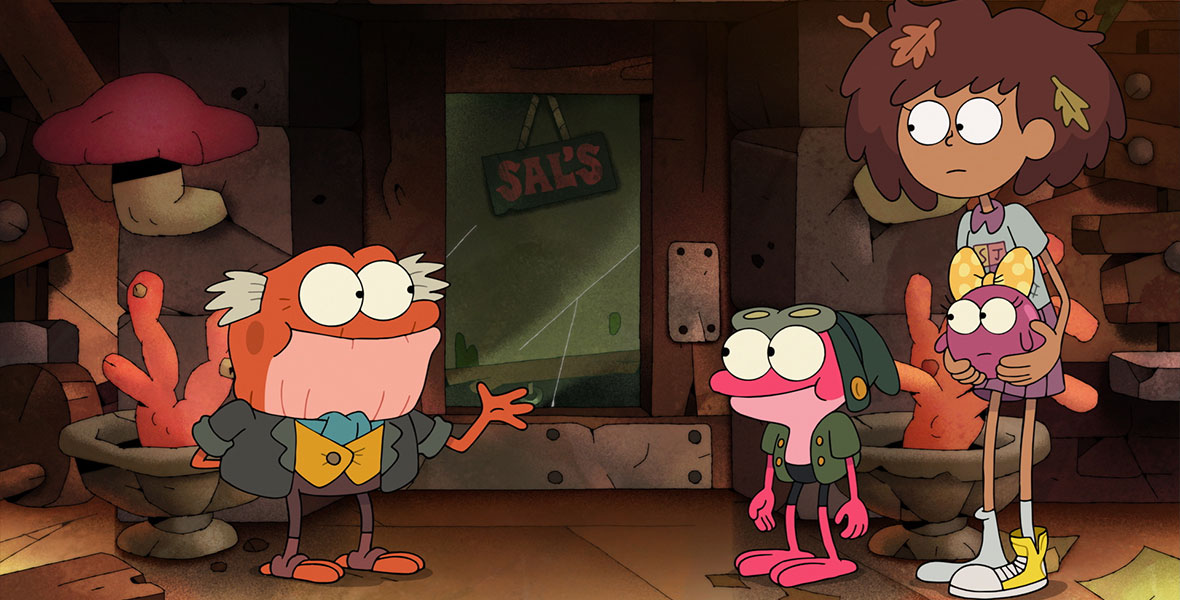
D23: What can we expect from the final two episodes?
MB: I really want people to think about that hidden arc of self-love when they’re watching these episodes and to think about how, when you get pressured into things, a lot of that comes from this place of not having confidence, not having self-esteem. I feel like that, ultimately, is a big part of Anne’s story. There’s so much action and stuff in these final two episodes; the animation team just went crazy! It’s so good. The storyboarding is top notch, the writing is great, the music is phenomenal. It’s very epic. But at the end of the day, I don’t want to lose that small, intimate story as well. I hope people can still focus on that—even though there’s giant robots and explosions and stuff!
D23: Is there anything you want to say to the fans directly?
MB: The biggest and most heartfelt thank you! Truly, without your engagement, there is no show. And we really looked to that stuff—the fan art, the engagement—as our motivation for working. It can be hard sometimes in television to write, write, write, and work your butt off. Sometimes it feels like it gets out there and you’re like, “Oh, I hope people saw it and enjoyed it.” But the feedback has been so helpful and so great for us. It really brought us a lot of joy. During COVID-19, it was really difficult sometimes to pick yourself up and try to get back into your work. We always remember that we have these great fans who we just want to do right by, and so I really appreciate that. It’s hard to say goodbye to the show, but the show itself is about that process. Your life changes, and changes are often scary, but they’re an essential and beautiful part of life.
For more toad-ally awesome Amphibia news, listen to the D23 Inside Disney podcast interview with Jason Ritter, who recently guest starred as the voice of Barrel in the episode “The Core & The King.”


